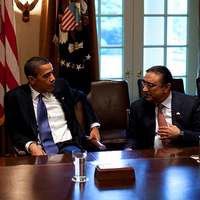As part of the recently signed Kerry-Lugar Bill authorizing $7.5 billion in economic assistance for Pakistan over the next five years, the U.S. Agency for International Development and the U.S. State Department will be expected to "assist efforts to enhance civilian control and stable constitutional government" in Pakistan, as outlined in the draft metrics for evaluating progress in Pakistan presented by the Obama administration to Congress in September. The goal is to enhance Pakistan's local capacity for sustainable communal and economic growth so that counterinsurgency (COIN) efforts can be successful. Rebuilding civil society will be even more important as a bulwark against militancy once the Pakistani military's current offensive against the Taliban in South Waziristan ends.
Yet, simultaneously, a major reorientation in U.S. policy toward Pakistan is underway, with the planning, administration, and staffing of reconstruction projects being handed over to the government of Pakistan and to private Pakistani organizations. U.S. officials hope this will both reduce Pakistanis' negative reactions to foreign aid, and safeguard American civilians by removing them from the Federally Administered Tribal Areas (FATA) and the North West Frontier Province (NWFP).
There is no doubt that both social reconstruction and enhanced security is desperately needed in the FATA and NWFP, where local populations still face intimidation from armed Islamic terrorists. Economic opportunities have declined, leaving approximately 60 percent of the FATA's 5 million inhabitants and 20 percent of the NWFP's 17.5 million residents below the poverty level. Literacy has fallen to 17.4 percent in the FATA and 49 percent in the NWFP, because militants have destroyed secular schools.

